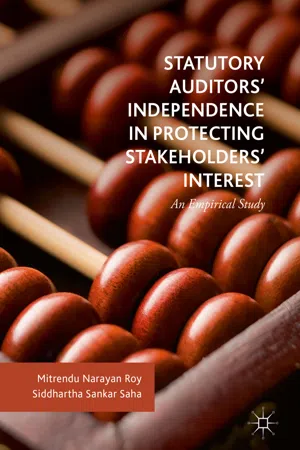1.1 Preamble
Financial transactions made by a business enterprise are translated into accounting language when preparing financial statements in accordance with generally accepted accounting principles (GAAPs), statutory norms, pronouncements and announcements of the professional bodies and so on.1 Management of the company is under the legal compulsion to prepare official financial statements comprising profit and loss account, balance sheet, notes to accounts, schedule of accounts and cash flow statement, and so forth. These financial statements are made to communicate financial information to the stakeholders of a corporate enterprise at a regular interval as they are interested to know the financial information and future prospect of the business for the purpose of decision-making. Therefore, preparers of these statements are supposed to be ethical in discharging their duty and they must ensure that financial information is materially accurate , fair and managerial judgements used to apply an accounting principle in particular circumstances are appropriate.2 Financial reports must exhibit a ‘true and fair’ view of operational results and the financial affairs of the business enterprise in terms of protecting stakeholder interests. Hence, the verification and authentication of financial statements of corporate enterprises by a competent external authority is a statutory requirement in most developed and developing countries across the globe. Accountants with an affiliation to a professional body are normally appointed by the shareholders of the corporate enterprise to perform this role. These individuals are known as independent statutory financial auditors.3 Based on audit evidences collected from internal and external sources and their professional judgements, they conduct a rigorous audit procedure and form their opinion on financial statements in their audit report in order to state as to whether financial statements reveal ‘true and fair’ view of the operational results and financial position of the business enterprise.4 Many sections of the stakeholders perceive that audited financial statements are free from manipulation and fraud . Thus, auditors are supposed to play a significant role in the economy by protecting stakeholder interests.5 Since the financial decisions of a large part of the society related to business depends upon auditors’ opinion, regulatory authorities in a country enforce certain guidelines to ensure their independent and unbiased functioning.6 In India , professionally qualified chartered accountants (CAs) are supposed to play their independent role as statutory financial auditors. Professional pronouncements such as company law, standards on auditing, quality control standards and codes of conduct, issued by the government and professional bodies such as the Institute of Chartered Accountants of India (ICAI), aim to guide them in maintaining good faith, integrity , independence and transparency. Any underperformance of these functions or non-compliance with any binding rules is considered a serious matter.
In the economic environment of the late 2010s, greed and the tremendous urge to survive amidst cut-throat competition induce some compan...
